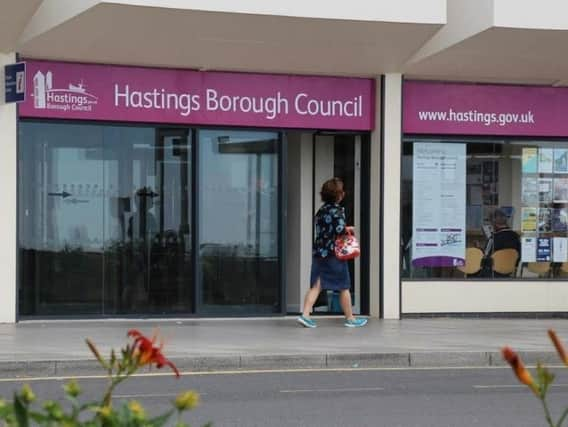Hastings council looks at rent guarantor pilot scheme


At a cabinet meeting on Monday (February 4), Hastings council leaders heard details of how the authority plans to spend its Flexible Homelessness Support Grant (FHSG) in 2019/20 – ringfenced money for homelessness prevention activities and temporary accommodation.
According to papers from the meeting, the council intends to invest the grant in a number of preventative measures, including a pilot scheme where the council will act as a guarantor to help people move on from temporary accommodation or prevent them from becoming homeless.
Advertisement
Hide AdAdvertisement
Hide AdCllr Andy Batsford, Hastings Borough Council’s lead member for housing, said: “For a long time we have given out grants for deposits and rent in advance, which has helped a considerable amount of people find places to live and make sure they didn’t end up homeless and living in our temporary accommodation.
“But more and more people are now having to find guarantors on top of that. The reality is most people’s parents haven’t got the finances to be the guarantor either.
“You need to be earning around three times the amount of rent to be a guarantor, including your own rent or mortgage payments, so it is almost impossible to find a guarantor.”
During the meeting, councillors heard how the number of homelessness applications accepted by the council has remained ‘relatively constant’ over the last few years, with 252 in 2015/16, 230 in 2016/17 and 260 in 2017/18.
Advertisement
Hide AdAdvertisement
Hide AdHowever, officers said, the number of Hastings residents needing temporary accommodation had risen sharply over the same period, with 50 households living in temporary accommodation at the end of 2015/16 rising to 92 at the end of 2017/18.
The amount of time people stay in temporary accommodation has also risen and now stands at an average of 130 days per household. The length of time families can stay in temporary accommodation is often even higher, a council report says.
Officers attribute the rise to: changes to the benefits system putting extra pressure on low income families; longer waiting lists for affordable housing; limited supplies of private housing; and ongoing cuts to adult social care.
The report said: “A combination of these factors has resulted in a rise in the number of placements in temporary accommodation and importantly an increased average length of stay, due to lack of genuinely affordable move on options for low income households.”
Advertisement
Hide AdAdvertisement
Hide AdThrough the pilot – and other projects – the council intends to reduce the number of people needing to live in temporary accommodation and the length of their stay.
The council is bidding for funding to run the pilot project but intends to fund the scheme through the FHSG if unsuccessful.
Huw Oxburgh , Local Democracy Reporting Service